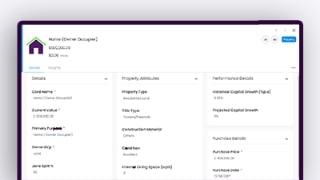Renovating a property can be an exciting yet challenging endeavour. Whether you’re aiming to add value, improve liveability, cater for a growing family or prepare for a sale, having the right tips can make all the difference. Moorr doesn’t have a lot of features when it comes to planning for a renovation (yet!) but we want to be able to help our community.
So we’ve gone and listened to five podcast episodes of The Property Couch and curated a top 10 tips for property owners looking to renovate. Of course, this is a guide only and we don’t recommend you to make any financial decisions without consulting a professional.
We hope you find this helpful! Let us know what you think at the bottom of this blog 😉
1. Plan Thoroughly Before Starting
Thorough planning is essential before you start any renovation project. Assess the current state of your property, set clear goals for what you want to achieve, and establish a realistic budget.
Most renovation projects tend to blow up in cost (often due to emotional attachment to the project), so it is crucial to ensure that your plan is as detailed as possible and that your finances can support it. In times of uncertainties, such as rising interest rates or booming inflation, having a buffer in place is more important than ever! A general recommendation in the industry is to allocate an additional 10-20% of your budget as a buffer to cover unexpected costs. This allows you to handle unforeseen expenses without derailing your project or, worse, impacting your current lifestyle. Make sure you speak to your banker or mortgage broker about having sufficient finance in place. If you’re looking for an investment-savvy mortgage broker, check out our award-winning sister company, Empower Wealth.
Detailed planning helps avoid unexpected issues and keeps the project on track. As Amelia Lee from Episode 249 mentioned, “The biggest mistake that homeowners make is that they only focus on phase four – getting your project built. They don’t understand that these three phases that need to happen before you get your project built”.
This revision ensures the paragraph flows smoothly and maintains clarity. Let me know if there’s anything else you’d like to adjust!
2. Stay Flexible and Adaptable
Renovation projects often encounter unforeseen challenges. Stay flexible and be prepared to adapt your plans as necessary. Having a contingency budget and being open to alternative solutions can help you navigate these surprises more smoothly. As Kyal and Kara from Episode 284 shared, “You need to be ready to pivot and make quick decisions when unexpected issues arise”.
3. Hire Reputable Professionals
Work with reputable and experienced professionals for your renovation project. This includes builders, contractors, architects, designers and potentially, even an accountant! Check their references, review past work, and ensure they understand your vision and budget constraints. Jane Slack-Smith from Episode 213 emphasised, “Choosing the right team can make or break your renovation”.
4. Invest in Quality Materials
Using high-quality materials can enhance the durability and aesthetic appeal of your renovations. While it might be tempting to cut costs with cheaper options, investing in quality can save you money in the long run by reducing the need for future repairs and replacements. As the Three Birds Renovations team mentioned in Episode 181, “Quality materials not only look better but also stand the test of time”.
5. Maximise Natural Light
Natural light can transform the look and feel of a home. Think of all the times when you walk into a naturally lit property, how does that feel? Feels good isn’t it? Research indicates that being exposed to natural light during the day syncs with our body’s circadian rhythm, leading to increased productivity, better mood, enhanced sleep quality, and higher vitamin D levels. Sunlight, much like trees, foliage, and fresh air, can be seen as nature’s natural mood booster!
Which is why it’s important for you to consider ways to maximise light, such as adding or enlarging windows, using light colours for walls and ceilings, and incorporating reflective surfaces like mirrors and glass. A bright, airy space often feels more welcoming and spacious 🌞
6. Be Strategic with Layout Changes
Changing the layout of your home can be costly, but it can also add significant value. Focus on creating open, functional spaces that enhance the flow and usability of your home. Avoid unnecessary structural changes that don’t contribute to the overall value or functionality.
The Three Birds Renovations team advised, “Think about how the space will be used daily and make changes that truly improve functionality”.
7. Consider Energy Efficiency
Energy-efficient homes are increasingly attractive to buyers. Incorporate features like insulation, energy-efficient windows and appliances, and consider renewable energy sources such as solar panels. These improvements can reduce utility costs and make your home more marketable.
In Australia, energy efficiency standards are governed by the National Construction Code (NCC), which sets out the minimum requirements for the design and construction of new buildings. In Victoria, for example, all new homes must meet a minimum 7-star energy rating. This rating includes considerations such as insulation, glazing, sealing, and shading. Each state is different and there are various conditions to it as well so make sure to conduct thorough due diligence before you start your renovation projects.
As discussed in Episode 249, “Investing in energy efficiency is not just good for the environment but also for your wallet in the long run”.
8. Keep Future Maintenance in Mind
Choose renovation options that are not only stylish but also easy to maintain. Durable finishes, low-maintenance landscaping, and smart home technology can reduce the time and cost of upkeep, making your home more appealing to potential buyers and more comfortable for you to live in.
Kyal and Kara shared in Episode 284, “Think about how much time and effort you’ll need to maintain your renovations in the future”.
9. Understand Your Target Market
When renovating for resale, it’s crucial to understand your target market. Tailor your renovations to the preferences and needs of potential buyers in your area. For instance, young families may prioritise extra bedrooms and safe play areas, while downsizers might value modern, low-maintenance features.
10. Focus on High-Impact Areas
Concentrate your efforts on areas that offer the highest return on investment, such as kitchens, bathrooms, and curb appeal. These spaces significantly influence a property’s perceived value and can make a substantial impact without requiring a complete overhaul.
Renovating a property requires careful planning, strategic decisions, and a focus on quality to ensure you achieve the desired results. By following these tips, hopefully you can enhance the value and functionality of your home, making it a more enjoyable space for you or more attractive to potential buyers.
Keen for more?
Upcoming Webinar:
We’ve got a webinar coming up at 7:30pm (AEST), Tuesday, 20th August! It’s called Data to Decisions: Moorr’s Tools for Savvy Property Investors and is designed to empower property investors with Moorr’s latest tools: the Property Cashflow Projection Tool and the Rental Analysis Tool. Whether you are an experienced investor or just starting out, these tools will revolutionise the way you manage your property investments. Click here to register >
Podcast Episodes:
Here are all the episodes that we’ve used as references for this article:
- 181 | Tips from Three Birds Renovations on How to Create the Perfect Renovation, Survive it, and See a Return on Investment!
- 188 | What’s Renovating got to do with Dating? Chat with Naomi Findlay
- 213 | Jane Slack-Smith – How to Adjust your Renovation Strategy for 2019?
- 284 | Kyal & Kara from The Block – How To Renovate, Raise Kids, Run A Business & Not Lose Your Mind in the Process
- 249 | The 4-Step Framework to Renovate or Build Your Home…AND Enjoy It! – Chat with Amelia Lee












